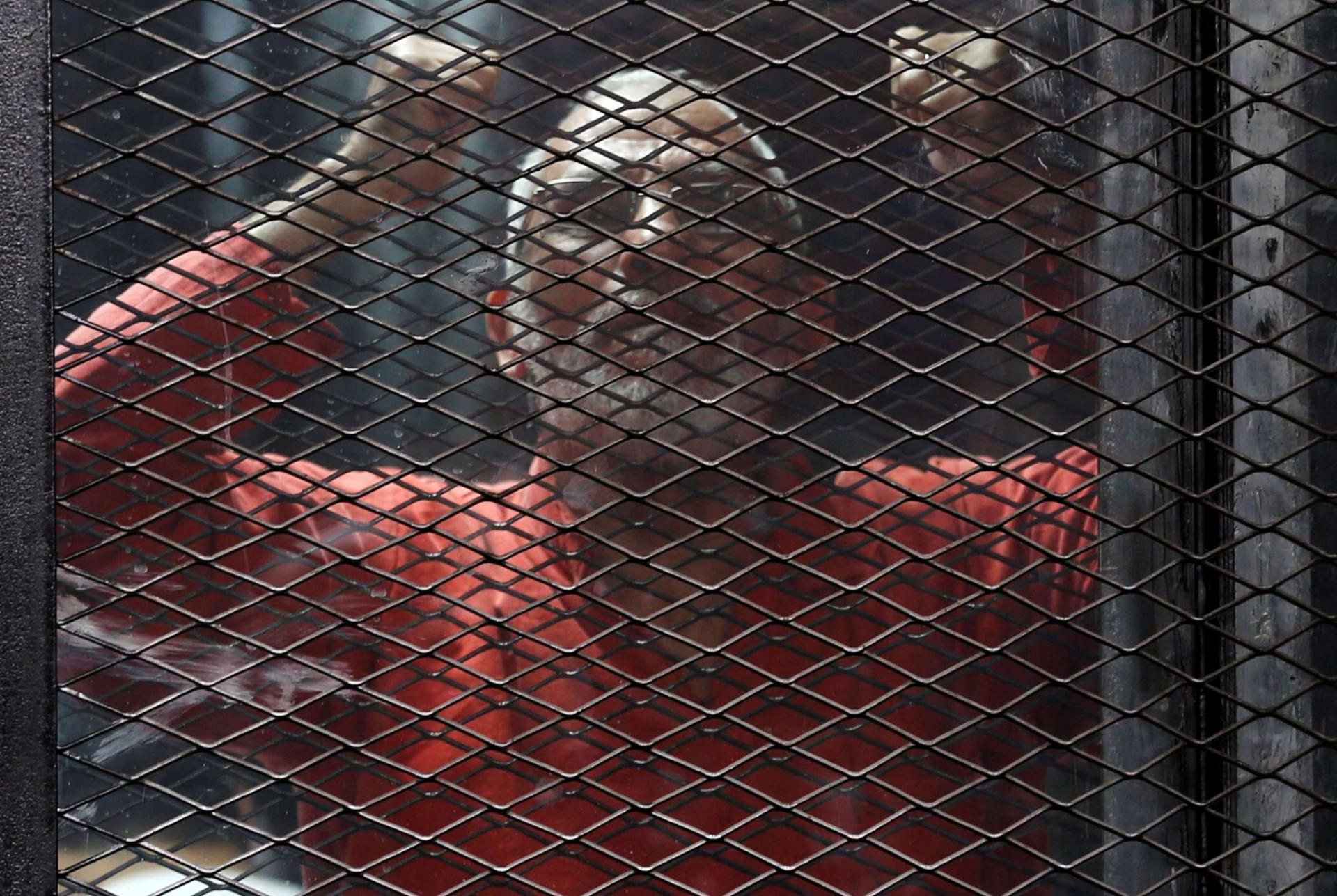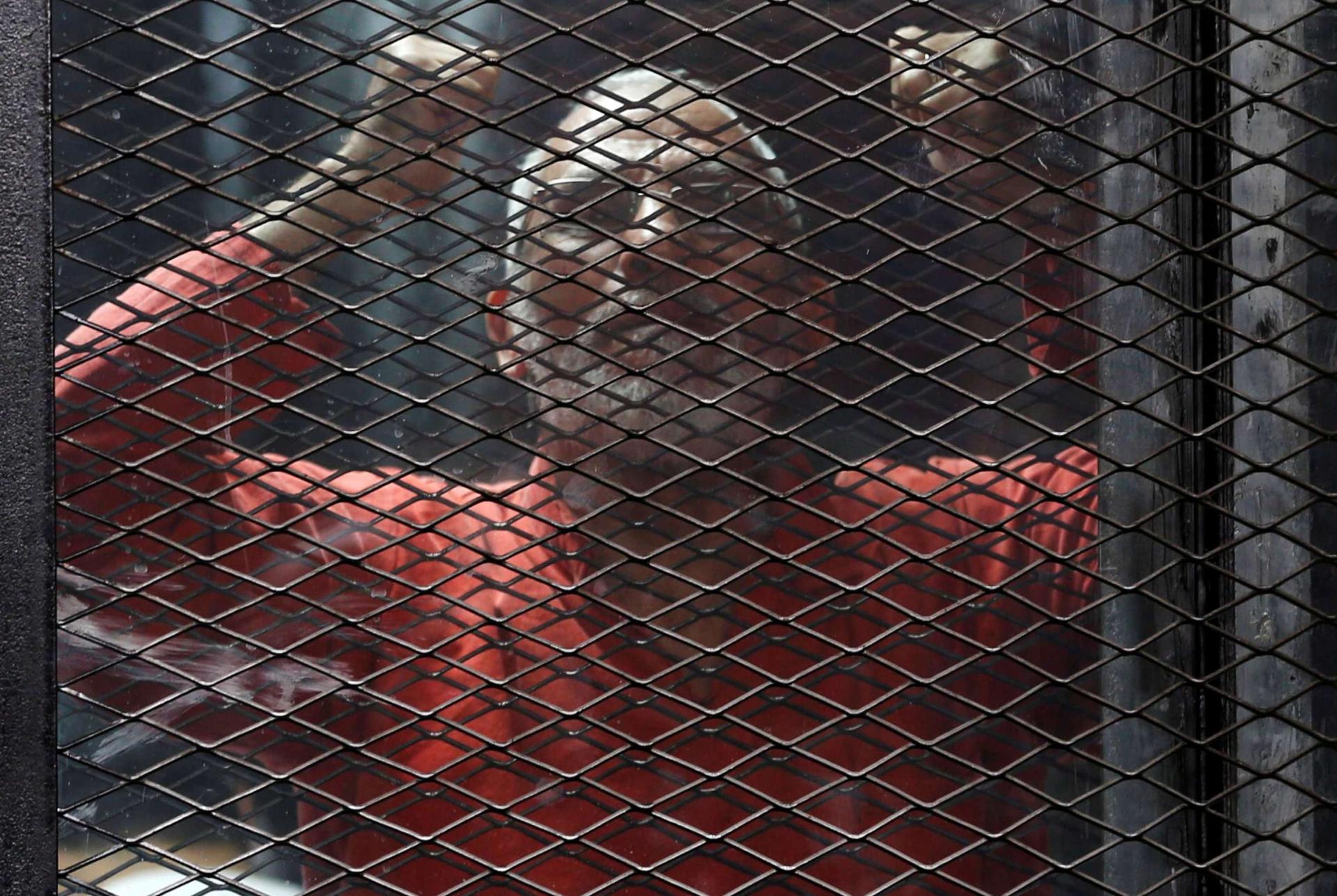Egypt sentences 75 to death over 2013 Rabaa sit-in
CAIRO - An Egyptian court on Saturday confirmed death sentences against 75 people in one of the largest mass trials since the 2011 uprising.
It also handed a five-year jail sentence to award-winning photojournalist Mahmoud Abu Zeid.
Abu Zeid, widely known as Shawkan, who earlier this year received UNESCO's World Freedom Prize, is however expected to walk free soon, his lawyer said.
Shawkan was arrested in August 2013 as he covered deadly clashes in Cairo between security forces and supporters of ousted Islamist president Mohamed Morsi.
He was accused of "murder and membership of a terrorist organisation" -- charges that can carry the death penalty -- but has already spent five years in jail.
Shawkan should therefore be able to leave prison "within a few days", his lawyer Karim Abdelrady said as he welcomed the verdict.
Smiling in the dock, the photojournalist made a "V" for victory sign to journalists.
But Abdelrady added that the sentence was still "unfair because he (Shawkan) was only doing his job", covering the events unfolding in the Egyptian capital five years ago.
The lawyer said he would launch a new legal bid to recognise the innocence of his client.
Shawkan was one of 739 defendants on trial in the same case, most of them facing charges of killing police and vandalising property during the clashes.
His detention sparked outrage among activists and NGOs who lobbied continuously for his release.
A photo of Shawkan -- behind bars with his hands in front of his face mimicking holding a camera -- have long circulated widely on social media.
75 death sentences confirmed
RSF ranks Egypt 161st out of 180 countries on its press freedom index and says that at least 31 journalists are currently detained in the Arab world's most populous nation.
The same court that handed Shawkan a five year term on Saturday also issued death sentences for 75 people, including prominent Islamist leaders, and jailed more than 600 others over a 2013 sit-in which ended with the killing of hundreds of protesters by security forces.
The sentencing concluded the mass trial of some 700 people accused of offences including murder and inciting violence during the pro-Muslim Brotherhood protest at Rabaa Adawiya square in Cairo.
The government says many protesters were armed and that eight members of the security forces were killed. It initially said more than 40 police had died.
But rights groups say over 800 protesters died in the single most deadly incident during the unrest that followed Egypt's 2011 popular uprising.
In Saturday's hearing at the vast Tora prison complex south of Cairo, a criminal court sentenced to death by hanging several prominent Islamists including senior Brotherhood leaders Essam al-Erian and Mohamed Beltagi and preacher Safwat Higazi.
Muslim Brotherhood spiritual leader Mohamed Badie and dozens more were given life sentences, judicial sources said. Others received jail sentences ranging from five to 15 years.
Cases were dropped against five people who had died while in prison, judicial sources said, without giving further details.
Security cracakdown
Following weeks of protests in 2013 against the ouster of Islamist President Mohamed Mursi by the military -- led at the time by Egypt's current president, Abdel Fattah al-Sisi -- security forces violently broke up the demonstrators at Rabaa square.
They arrested hundreds of people who were charged with inciting violence, murder and organising illegal protests.
Rights groups have criticised the trial, saying it includes peaceful protesters and journalists.
Critics say that since Sisi was elected president in 2014 the government has handed down death sentences to hundreds of his political opponents, on charges such as belonging to an illegal organization or planning to carry out an attack, in order to silence them.
But authorities have justified a crackdown on dissent as being directed at militants and saboteurs trying to undermine the state.
Supporters say increased security measures are needed to stabilise Egypt, which still faces an Islamist insurgency in the Sinai Peninsula and is reeling financially from years of unrest.


